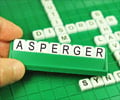Young people with Attention-deficit hyperactivity disorder (ADHD) have impaired speech processing in environments with a lot of background noise.

‘Young people with Attention-deficit hyperactivity disorder (ADHD) have impaired speech processing in environments with a lot of background noise’





Students with ADHD may fall behind when the teacher (or university lecturer) is speaking and there are murmurs in the background. Research shows that these students lose precious time as they try to understand the words being spoken, and by the time the next word comes along they are already behind.The solution is simple, but difficult to implement: silence. Understanding speech is an ability that enables interpersonal communication and is essential for an active life and emotional well-being.
Listen Up! ADHD Slows Spoken-Word Processing in Adverse Listening Conditions
Processing speech in a noisy environment is necessary for everyday conditions and frameworks, such as school, work, and social interactions. The understanding of speech involves the executive functions of inhibition (delaying a response), sustained attention, selective attention, working memory, and planning and executing tasks.People with ADHD often have difficulty controlling and managing these actions. However, there is almost no research in the literature to date that has studied the relationship between speech and ADHD.
Researchers experimented with subjects from two groups (with and without ADHD) who were asked to perform a task in noisy conditions simulating common situations such as a classroom or a family meal.
The experiment was conducted using an eye tracker device, the only method that enables analysis of processes in real time. The findings showed that the group with ADHD had a delay/slowdown of half a second in performing the task, that is, a delay in processing speech.
Advertisement
Previous studies have found that people with ADHD need an optimal signal-to-noise ratio to properly process and recognize spoken words. Recognition and processing require attention, attention mobilization, inhibition, and working memory capacity.
Advertisement
The effort people with ADHD have to make to cope with distractions dilutes their cognitive resources, affects their ability to use their working memory effectively, and impairs their perception and processing of speech.
Source-Eurekalert













